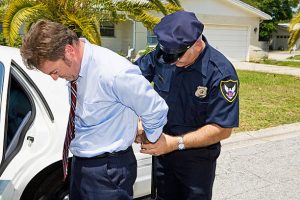Governor Rick Perry signed several bills into law that will impact the San Antonio area indigent criminal defense system and surrounding communities, Bexar county, and Texas. The regular 82nd legislative session ended on May 30, 2011, and the following House Bill will take effect on September 1, 2011. The following summary of the law concerns the Government Code, the Code of Criminal Procedure, and the Local Government Code. This new law, and all Texas laws, can be located at the Texas Constitution and Statutes website. As with all new laws, the changes made apply only to offenses committed on or after the effective date.
HB 1754, Relating to the reorganization of powers and duties among agencies in this state that provide representation to indigent defendants in criminal cases and to the reorganization of funding sources for indigent defense. Subtitle F, Title 2, Government Code, is amended by adding Chapter 79. Section 71.001, Government Code, is amended. Section 78.052(b), Government Code, is amended. Section 78.056(b), Government Code, is amended. Section 81.054(c), Government Code, is amended. Section 402.035(c), Government Code, is amended. Article 26.04, Code of Criminal Procedure, is amended by amending Subsections (a), (d), and (f) and adding Subsection (f-1). The heading to Article 26.044, Code of Criminal Procedure, is amended. Article 26.044, Code of Criminal Procedure, is amended by amending Subsections (a), (b), (c), (d), (e), (f), (g), (h), (i), (j), (k), (l), and (m) and adding Subsections (b-1) and (c-1). Chapter 26, Code of Criminal Procedure, is amended. Chapter 26, Code of Criminal Procedure, is amended. Articles 26.05(a), (c), and (d), Code of Criminal Procedure, are amended. Section 11(a), Article 42.12, Code of Criminal Procedure, is amended. Section 133.107, Local Government Code, is amended. The following are repealed: (1) Article 26.05(i), Code of Criminal Procedure; (2) Section 71.0351, Government Code; and (3) Subchapter D, Chapter 71, Government Code.
The Texas House Bill sets up the Indigent Defense Commission. This new state agency replaces the Task Force on Indigent Defense, it becomes a permanent standing Commission of the Texas Judicial Council. While the new Commission will remain administratively attached to the Office of Court Administration, it will maintain an independent budget and must prepare and submit its own Legislative Appropriations Requests. The Commission will be made up of eight ex officious members and five appointive members. All powers, staff, property, and appropriations will be transferred from the abolished Task Force to the established Commission.
Continue reading
 San Antonio Criminal Lawyers Blog
San Antonio Criminal Lawyers Blog


 unty Criminal
unty Criminal On Sunday February 25, 2018, Tiffany, Anthony, and their three young children who range in age from 7 to 10 years old had stopped to help Fadal’s mother at her home. While outside, and for reasons currently unknown, Fadal shot Anthony Strait and then turned and shot Anthony’s wife, Tiffany. Anthony apparently died at the scene and Tiffany later died at the hospital.
On Sunday February 25, 2018, Tiffany, Anthony, and their three young children who range in age from 7 to 10 years old had stopped to help Fadal’s mother at her home. While outside, and for reasons currently unknown, Fadal shot Anthony Strait and then turned and shot Anthony’s wife, Tiffany. Anthony apparently died at the scene and Tiffany later died at the hospital. Stand Your Ground Law, Shoot First Law, Castle Doctrine, Make My Day Law, Defense of Habitation Law – There are many names across the United States used to describe the approved use of deadly force by a person who feels threatened. In the wake of the shooting death of Florida teenager
Stand Your Ground Law, Shoot First Law, Castle Doctrine, Make My Day Law, Defense of Habitation Law – There are many names across the United States used to describe the approved use of deadly force by a person who feels threatened. In the wake of the shooting death of Florida teenager 
 The regular 82nd legislative session ended on May 30, 2011, and the following House Bill will all take effect on September 1, 2011. The following summary of the law concerns the
The regular 82nd legislative session ended on May 30, 2011, and the following House Bill will all take effect on September 1, 2011. The following summary of the law concerns the